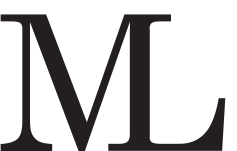Banning Books
In late January I attended a panel discussion at Cooper Union concerned with the ‘banning’ of books. Denouncing this alleged trend has become a commonplace in some political circles. Shortly after the talk, two librarians battling demands from opposing ideological sides were profiled in The New York Times. As an educator, I am concerned by thought censorship, but far more alarmed by the parlous state of student literacy.
Someone is reading a ‘banned’ book
The epithet “banned books” may entice readers to pick up a particular title, or donors to contribute to their local library. But the widespread success of titles like Fifty Shades of Grey and White Fragility, confirms that controversial books are not banned in America. Using the phrase as the title of a talk at a venerable institution of public debate – one that frequently cites its connection to Abraham Lincoln’s 1860 address on slavery - spreads more heat than light on an important question. Educators should not tolerate the misuse of language.
The precise use of words undergirds teachers’ work. Some 2,500 years ago the Chinese philosopher Confucius said, “If language is not correct, then what is said is not what is meant; if what is said is not what is meant, then what must be done remains undone ... Hence there must be no arbitrariness in what is said. This matters above everything.”
For some of the Cooper Union panelists, limiting younger readers’ access to books by and about minorities – be they black, gay, or trans to pick three examples - is the leading edge of a broader roll back of hard-fought civil rights gains. Indeed, some efforts to remove books from libraries and school curriculum are led by groups with a broader agenda, hoping to “motivate their base.” But, to pick one recent example, claims that a Tennessee school district “banned” Art Spiegelman’s Pulitzer Prize winning graphic novel Maus were false. As a local educator explained:
Maus is a great book. But that doesn’t mean it has to be in every middle-school classroom in the country. Madame Bovary is also a great book, but I wouldn’t include it on a list of required reading for teenagers.
Policies that remove parents and school boards from curriculum discussions beg the question who should decide what books schools use.
So where might political activists, library association leaders and social critics focus their efforts? Perhaps on data, gathered over decades, showing that across the nation about two-thirds of high school graduates can’t read proficiently. Or, here in New York, on the fact that just 40% of Black and Latino elementary and middle school students scored above basic on the 2023 state reading test.
Our continued failure to help these students traps them in intergenerational poverty and this deeply unjust. It also makes it unlikely that they’ll pick up a book, controversial or not, to read for pleasure.
Based on a true story?
In his 1985 bestseller, Amusing Ourselves to Death, Neil Postman foretold the impact of social media. While many feared the omnipresent state oppression of Communist regimes, Postman saw a greater threat in a public voluntarily addicted to ubiquitous entertainment. Think Aldous Huxley’s Brave New World, not George Orwell’s 1984. (Both books, coincidentally, were displayed in an enormous graphic wrapping the windows of Cooper Union on the night of the talk I attended)
Walking the streets of New York lately, the skunky smell of weed never far from your nostrils and the bright advertisements for the latest Netflix or Hulu drama never far from your eyes, one has to consider Postman was right. So-called book bans might concern the few hundred, mostly progressive-leaning older adults who attended the talk with me, but the vast majority of Americans tuned out long ago.
Low levels of student literacy were mentioned briefly at the talk, but the flippant response from one of the elite-educated panelists was to increase school funding. We already spend 29% of our budget on K12 education in New York, 38% above the national average. How much more money is needed before all of our kids can read well enough to be at risk of being harmed by a controversial idea in The Bluest Eye or Lolita?
One hopeful sign is interest in the “Science of Reading.” Tracing its roots to work by University of Virginia’s E.D. Hirsch, the idea is that two important strengths define successful readers. One is phonemic awareness – the ability to turn the letters on the page into sounds and words in your head, subconsciously. This foundational skill was, for far too long, dismissed by progressive educators, much to the harm of far too many children. Thankfully, the tide seems to have turned and more schools acknowledge the importance of effective decoding lessons.
But less well understood, or embraced, are findings from cognitive psychology that establish the importance of background knowledge to reading comprehension. This has often been dismissed as the imposition of a Western cultural canon on oppressed kids. In fact, a coherent curriculum provides students – particularly from low SES backgrounds – with the building blocks for deeper understanding. A recent study of Colorado schools demonstrated the significant impact of one such approach.
Despite these positive portents, progress is uncertain. In Ohio, a prominent professor sued when the state excluded her demonstrably ineffective curriculum from a plan to tackle reading disparities. In Brooklyn, a prominent elementary school principal told parents she would not implement a reading program aimed at helping the struggling students identified in the state testing data.
Loose talk about book banning may generate marginal increases in donations to libraries and get-out-the-vote groups. An equitable and inclusive society that provides children with greater economic opportunity and the freedom to think independently is more likely to come from recommitting to improving the quality of reading instruction in our elementary and middle schools.



